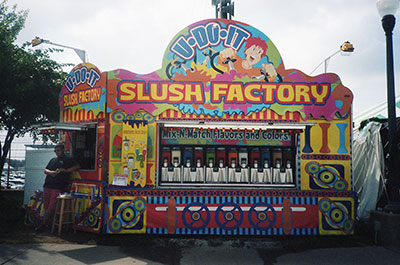Publishing Guide
Distribution: a sales team who place books in various stores and outlets. All methods of publishing are able to use Amazon and/or Ingram as distribution
Traditional Publishing
Large Press (The Big 5 and the close behinders: Hachette, Harper Collins, MacMillan, Penguin Random House, Simon & Schuster, Houghton Mifflin Harcour).
- Pros: The biggest distribution (ie. the book will be widely available in bookstores and elsewhere). Arguably, the best chance at a well-known, well-read book that makes some money. Likely to get an advance (money to the author upfront for book).
- Cons: You need to get an agent first, if you aren't top book in the publisher's catalog you are unlikely to get much marketing support or sales so don't forget to add in the cost of a publicist. Also, it takes a very very long time from finishing the book to having it published.
Mid-sized press Press:
- Pros: Likely to have a robust backlist of titles, name recognition in the industry, a professional staff, and strong publishing resources. May publish more unique and risky titles than a large publisher. May have major distribution. May be more personalized than a big press.
- Cons: Likely to need agent but not always. Likely to have some publicity but still will count on author and freelance publicist for the bulk of publicity. Distribution will not be as robust as a big publisher. Less likely to have a significant advance.
Small Boutique Press:
- Pros: There are a lot of small boutique presses you can directly submit to. This cuts out the time it takes to get an agent and small publishers generally have a much quicker timeline for turnaround. Small pubs will likely pay for editing (though you will only get a percentage of sales).
- Cons: You are unlikely to get better distribution than if you are self-publishing. Also, it still takes a while to find a press and submit and you are unlikely to get good/any publicity support. Also, the print run will be small or it will be print on demand and sales are not likely to be high. The quality of the editing and design may not be very high because the press will not have a ton of financial resources (though this is not always true -- some small presses put out magnificent books!).
Hybrid Models:
- Pros: You may benefit from the press being known (but perhaps not if the reputation isn't good). They will likely project manage the making of the book.
- Cons: You will pay out of pocket for most of the services a publisher would usually provide. The hybrid press makes money in the difference between what they pay their workers to provide publishing services and the amount they charge the authors. Not a great set up for quality or pricing. Unlikely to have distribution unless it is charged at a very high rate/book. Our least recommended option.
Self-publishing/Start a Publishing Company
- Pros: You can hire very good people to edit and design a book to the level of reputable presses. Your timeline is in your own hands, though it will still take at least 5 months for a publicity campaign plus editing and design. Author retains full rights to money from sales.
- Cons: It is expensive to do it right and a legitimate publicist will not work on a book that isn't extremely high quality. Amazon will be your main distribution though you can contact individual bookstores for events in order to stock book. Starting in a new industry is a huge learning curve for authors and it can be overwhelming without a project manager (and even with a project manager).
